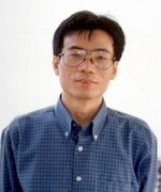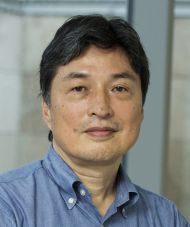KEYNOTES
This page will be updated soon. Please come back in a few days for complete keynotes topics and full speakers bio!
Prof. Jörg P. MüllerDepartment of Informatics |
 |
TITLE:
Agent-based modelling and simulation for co-operative traffic and transport
ABSTRACT:
Recent developments in Car-to-X communication networks, advanced assistance functions, and autonous vehicles create new prospects for Intelligent Traffic and Transport Systems (ITS): Traffic Information Systems may benefit from real-time information provided via cooperative sensing; autonomous vehicles can interact and perform cooperative driving maneuvers, aiming at improving traffic safety, traffic efficiency, and user comfort; traffic management may provide individual route guidance and electronic road pricing mechanisms to influence the behaviour of (automated and human) traffic participants towards societal goals. However, the autonomy of traffic participants makes analysing, predicting, and managing future ITS a very difficult problem, creating challenges for next-generation traffic management systems, requiring new cooperative approaches, enabling us to reconcile the concepts of user optimum and system optimum, respectively. Starting from the notion of co-operative, (de-)centralized traffic management, I advocate the multi-agent paradigm for modeling and simulation of future traffic systems. I report on experiences with a multi-agent based approach for cooperative traffic management and autonomous vehicle scenarios. I sketch the underlying conceptual paradigm and architecture, exemplify the use of game-theoretic and computational social choice methods in the traffic application domain, and report on ongoing work geared towards platforms supporting scalable multi-agent based simulations.
SHORT BIO:
Prof. Dr. Jörg P. Müller is a Full Professor of Computer Science at Technische Universität (TU) Clausthal; since 2008, he has been Head of the Department of Informatics at TU Clausthal. Previously, Jörg was a senior researcher at Siemens AG Corporate Technology, where he led the agents and peer-to-peer computing research group; earlier employments include John Wiley & Sons, Zuno Ltd., Mitsubishi Electric, and the German Artificial Intelligence Research Center (DFKI). Jörg holds a Ph.D. from Saarbrücken University in 1996 and an M.Sc. in Computer Science from Kaiserslautern University in 1991. Within the last 25 years, he has published over 200 papers on intelligent agents and multi-agent systems, business information systems and distributed computing. His current research interests include agent-based models, methods, technologies and applications for decentralized sociotechnical systems, which are developed and validated in traffic/transport, automation, and product engineering applications.
Prof. Phan Minh DungDepartment of Computer Science |
 |
Prof. Dung will give a joint speech for both PRIMA and PRICAI.
Prof. Toru IshidaDepartment of Social Informatics |
 |
TITLE:
Intercultural Collaboration: Human-Aware Research on Multiagent Systems
ABSTRACT:
In the beginning of the new millennium, we proposed the concept of intercultural collaboration where participants with different cultures and languages work together towards shared goals. Because intercultural collaboration is a new area with scarce data, it was necessary to execute parallel experiments in both in real fields as well as in research laboratories.
In 2002, we conducted a one-year experiment with Japanese, Chinese, Korean and Malaysian colleagues and students to develop open-source software using machine translation. From this experiment, we understood the necessity of language infrastructure on the Internet to create customized multilingual environments for various situations. In 2006, we
launched the Language Grid project to realize a federated operation of
servers for language services. So far, four servers have been set up in
Asia, and more than 200 language services have been registered from 22
countries. Using the Language Grid, we have been working with an international NGO for four years to support communications between rice
harvesting experts in Japan and farmers and their children in Vietnam.
During these experiences, we gradually understood the nature of intercultural collaboration and we faced different types of difficulties. Problems are "wicked" and not easily defined because of their nested and open networked structure. For example, technologies supporting collaboration are often successful when we weaken cultural differences; cognitions of cultural differences are different in different cultures, etc.
In this talk, we view intercultural collaboration as a research in
human-aware multiagent systems with the goal to encourage researchers in multiagent systems to stand by intercultural collaboration. We believe a human-aware multiagent research can contribute solutions to real-world complex problems.
SHORT BIO:
Toru Ishida has been a professor of Kyoto University since 1993. He has been a fellow of IEEE, a vice president of IEICE, and a member of the Science Council of Japan. He is a co-founder of the Department of Social Informatics, Kyoto University and the Kyoto University Design School. His research interest lies with Autonomous Agents and Multi-Agent Systems and modeling collaboration within human societies. He contributed to create PRIMA/ICMAS/AAMAS conferences: he was a chair of the first PRIMA, a program co-chair of the second ICMAS, and the general co-chair of the first AAMAS. His projects include Community Computing, Digital City Kyoto, Intercultural Collaboration Experiments, and the Language Grid.